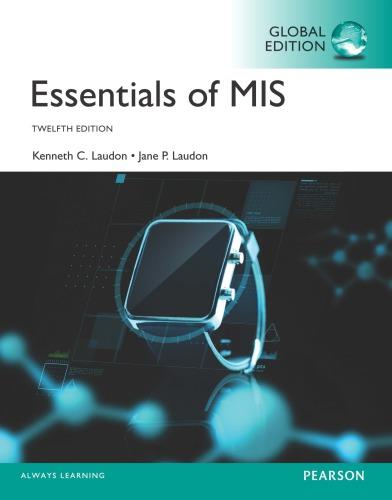Question
1. Your company utilizes both employees (L) and specialized robots (R) in its production process. The hourly wage of employees is $25, and the hourly
1. Your company utilizes both employees (L) and specialized robots (R) in its production process. The hourly wage of employees is $25, and the hourly cost of operating a robot is $175. The table below describes how the number of each type of input affects output or product (in a marginal way).
| Number of employees (L) | Marginal product of labor (MPL) | Number of robots (R) | Marginal product of robots (MPR) |
| 1 | 125 | 1 | 840 |
| 2 | 120 | 2 | 822.5 |
| 3 | 115 | 3 | 805 |
| 4 | 110 | 4 | 787.5 |
| 5 | 105 | 5 | 770 |
| 6 | 100 | 6 | 752.5 |
| 7 | 95 | 7 | 735 |
a. Given the much higher productivity of robots, why would the company ever consider using employees at all in its production?
b. When it started out, the company used three employees and five robots; is this an ideal combination of inputs? Why or why not?
c. During its busy season, the company increases its employees to five; provided it had a sufficient budget, what would be the optimal number of robots to use in this situation?
d. During the normal season when the company uses three robots, what would be the optimal number of employees to use?
Step by Step Solution
There are 3 Steps involved in it
Step: 1

Get Instant Access to Expert-Tailored Solutions
See step-by-step solutions with expert insights and AI powered tools for academic success
Step: 2

Step: 3

Ace Your Homework with AI
Get the answers you need in no time with our AI-driven, step-by-step assistance
Get Started


